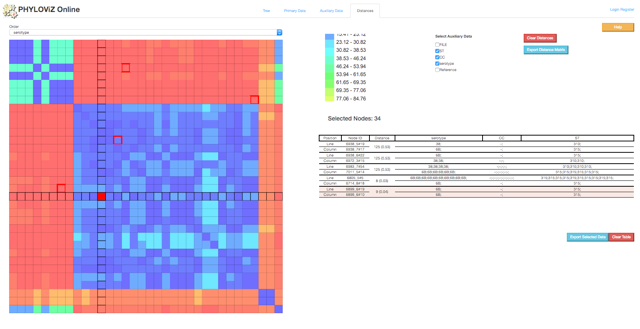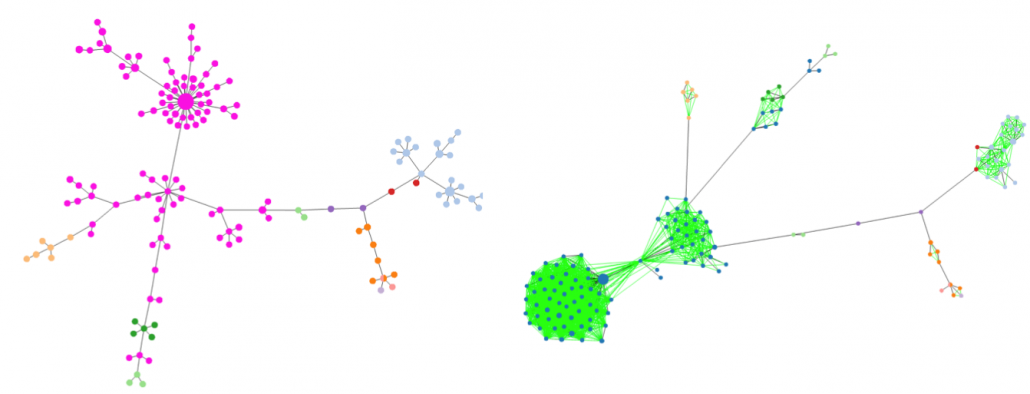Linking to External Tools
IRIDA allows external tools to interact with IRIDA using its REST API (see IRIDA for Developers). Currently, the GenGIS phylogeography tool for geospatial analysis of phylogenies, and the BioNumerics software suite have support for connecting to IRIDA through its REST API. Below is a list of tools being developed as part of the work of the IRIDA Consortium. Development activities are currently underway to extend IRIDA’s analysis functionality by linking to additional external resources such as CARD (Comprehensive Antibiotic Resistance Database and Resistance Gene Identifier), IslandViewer and IslandCompare (genomic island, virulence factor and antibiotic resistance gene identification and comparison), and PHYLOViZ Online (enhanced phylogenomic visualization).
Comprehensive Antibiotic Resistance Database (CARD)
CARD is an open source bioinformatics database of resistance genes, their products and associated phenotypes. CARD integrates disparate molecular and sequence data, provides a unique organizing principle in the form of the Antibiotic Resistance Ontology (ARO), and can quickly identify putative antibiotic resistance genes in new unannotated genome sequences by uploading reads or contigs into the Resistance Gene Identifier (RGI) platform. This unique platform provides an informatic tool that bridges antibiotic resistance concerns in health care, agriculture and the environment.
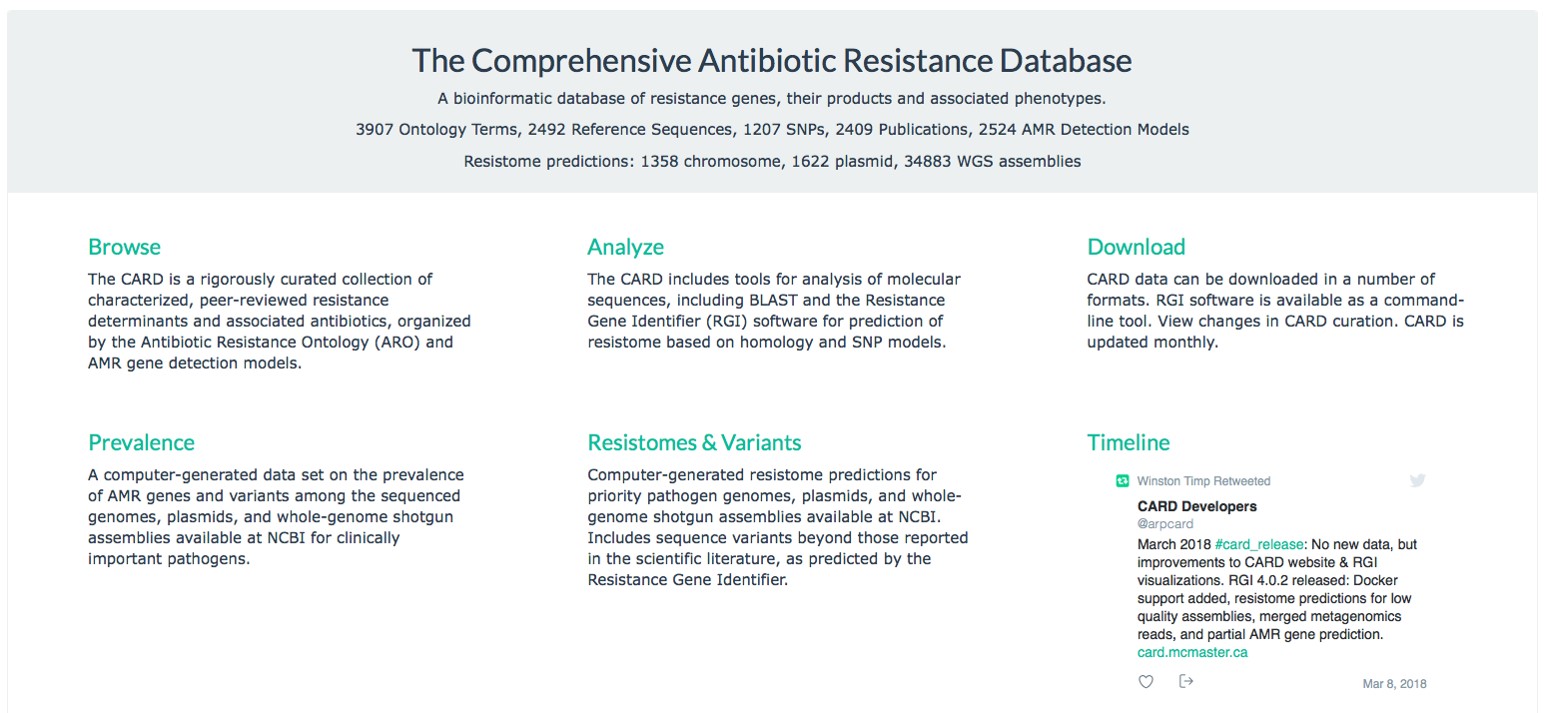
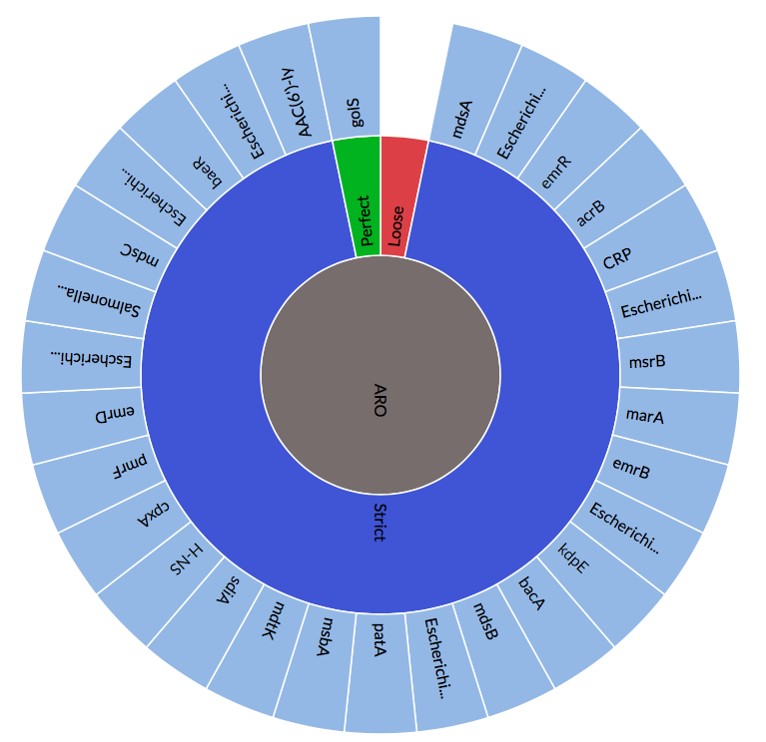
GenGIS
GenGIS is a free and open-source bioinformatics application that allows users to combine digital map data with information about biological sequences collected from the environment from multiple sample sites. GenGIS (pronounced ‘Genghis’ like Genghis Khan) provides a 3D phylogeography graphical interface in which the user can navigate and explore the data, producing a cartographic display to yield a clear view of the relationship between geography and genomic diversity.
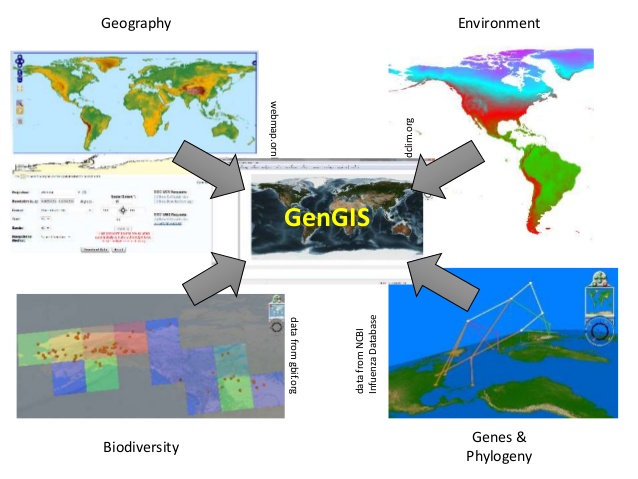
The Python interface allows easy scripting of statistical analyses using the Rpy libraries, and can be used to study microbiomes, track outbreaks, understand microbial evolution and transmission patterns and more. GenGIS has been applied to georeferenced microbial metagenomic, HIV-1, and human mitochondrial DNA data sets.
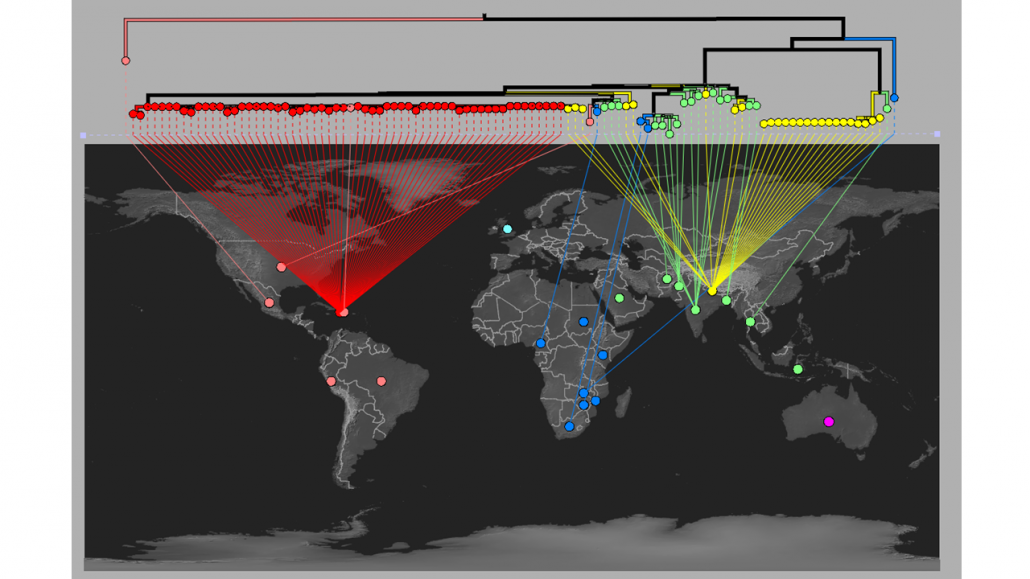
IslandViewer and IslandCompare
IslandViewer is a widely used web-based resource for the prediction and analysis of genomic islands (GIs) which are defined as clusters of genes of probable horizontal origin. GIs are of high interest since they disproportionately encode genes involved in medically and environmentally important adaptations, including antimicrobial resistance and virulence.
In addition to integrating GI predictions from the three most accurate GI prediction methods (SIGI-HMM, IslandPath-DIMOB, and IslandPick), IslandViewer overlays virulence factor, antimicrobial resistance gene, and pathogen-associated gene annotations. IslandViewer will be used as an add-on tool for the IRIDA platform to discover, visualize and compare GIs for newly sequenced outbreak isolates.
Currently, IslandViewer has pre-computed GI predictions for all complete microbial genomes available in NCBI, but can also analyze custom genomes uploaded by users. In order to allow for rapid assessment of newly sequenced isolates, IslandViewer also has the ability to analyze GIs in draft genome sequences.
Results are visualized using IslandPlot to generate interactive circular and linear plots, with the ability to search for genes and zoom in/out of regions of interest. IslandCompare, in development, will provide an innovative set of tools for an automated comparison and an interactive visualization of GI predictions. This tool will enable the user to compare tens to hundreds of genomes using a dynamic visual display of linear genomes aligned and compared in the context of a SNV-based phylogenetic tree.
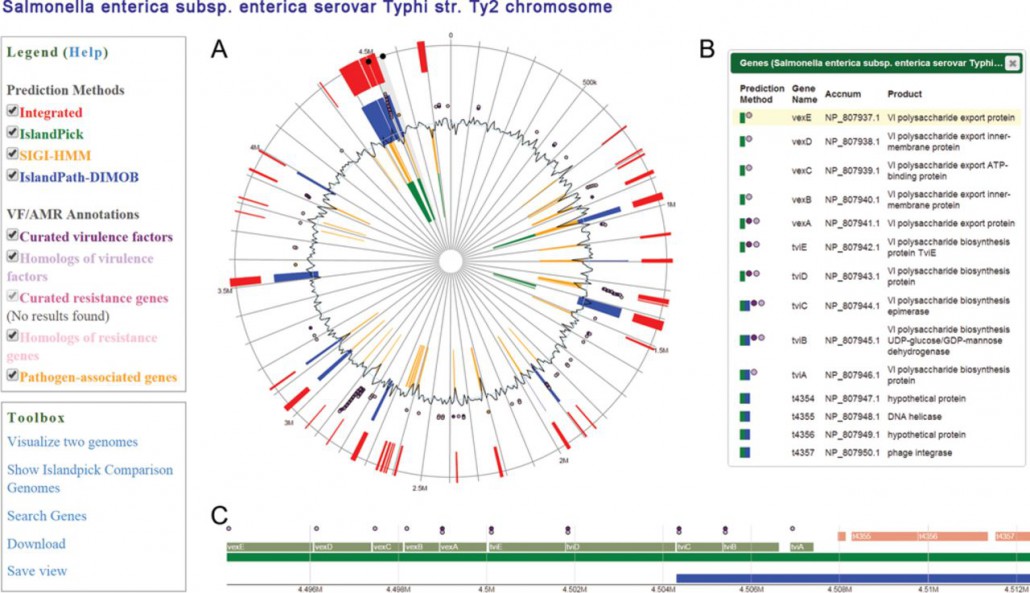
PHYLOViZ
PHYLOViZ Online was created for representing phylogenetic relationships using a Minimum Spanning Tree annotated with epidemiological information. The program offers tree analysis methodologies such as the nLV graph or an interactive distance matrix to better understand how well the tree is representing the whole dataset. Another key feature is the availability of a REST API for automatic data submission and querying to the web interface. PHYLOViZ Online provides a resource which allows users to share their data and trees publicly or privately among anyone with access to a web browser. It is freely available and the source code for local deployments is available on GitHub.
